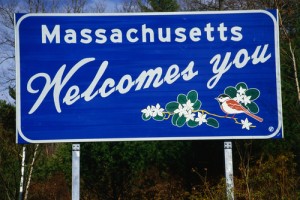 We reported in our post of June 11th that Governor Patrick had introduced a sweeping economic growth bill (HB4045) — that, if passed, would ban employee non-competes in the Commonwealth. We also explained that subsequent to Governor Patrick’s bill, another bill (HB4082), was introduced that stripped Governor’s Patrick’s bill and left only those portions dealing with trade secrets and non-competes. This new bill would adopt the Uniform Trade Secrets Act, repeal the current statutes regarding theft of trade secrets (Sections 42 and 42A of Chapter 93), and ban employee non-compete agreements. HB4082 was likely introduced because of concerns that Governor Patrick’s bill would not make swift enough progress, since the other provisions that did not relate to employee non-compete agreements were so broad in scope.
We reported in our post of June 11th that Governor Patrick had introduced a sweeping economic growth bill (HB4045) — that, if passed, would ban employee non-competes in the Commonwealth. We also explained that subsequent to Governor Patrick’s bill, another bill (HB4082), was introduced that stripped Governor’s Patrick’s bill and left only those portions dealing with trade secrets and non-competes. This new bill would adopt the Uniform Trade Secrets Act, repeal the current statutes regarding theft of trade secrets (Sections 42 and 42A of Chapter 93), and ban employee non-compete agreements. HB4082 was likely introduced because of concerns that Governor Patrick’s bill would not make swift enough progress, since the other provisions that did not relate to employee non-compete agreements were so broad in scope.
The second bill, HB4802, was referred to the Joint Committee on Economic Development and Emerging Technologies in early June, and now that Committee has scheduled a public hearing for July 1, 2014 from 11:00 a.m. to 2:00 p.m. in Room B-1 at the Statehouse. Similar to the committee hearing held previously on Governor Patrick’s broader economic bill (HB4045), we expect to hear testimony from constituencies on both sides of the non-compete debate. As the Boston Globe noted after the hearing on Governor Patrick’s bill, “[t]he sides are generally split according to size, with large, established employers … working to maintain the status quo, and people from the startup world — including venture capitalists who invest in early-stage companies — pushing to let workers jump to rivals whenever they want.We will be attending the hearing, and will report out after.
Also, still in play are the House and Senate’s economic development bills. As we reported previously, the House economic development bill is notably silent on the issue of non-competes and adoption of the Uniform Trade Secrets Act. The Senate economic bill, which was released this morning, is also silent on the issue of non-competes, but adopts the Uniform Trade Secrets Act. Both economic bills are pending. After votes on any amendments to the Senate bill next week, a conference committee will be appointed with three members from each body to reconcile the House and Senate versions. Since neither of the economic bills mention non-competes at all, the final version of the bill (after they reconcile the House and Senate bills) sent to the Governor for his signature (by July 31) will not change state law on non-competes. Separate and apart from the pending economic bills, whether or not a standalone bill like HB4802 will get to the Governor for signature by January 31st remains to be seen.
Against this backdrop, you may wonder what is next on the legislative path for HB4802 after the July 1st hearing. As we understand it, the Committee will meet after the hearing to decide next steps. This could happen as soon as Tuesday after the hearing, or sometime thereafter. The bill could emerge from the Joint Committee as is, or it could include amendments. Some are suggesting that the bill will be amended and a compromise bill will emerge that will then go to the House Ways and Means Committee, where any changes to bills are reported. It could then be reported out to the full House for consideration, or it may have to go back to committee.
In sum, it is difficult to predict at this juncture whether HB 4082 will survive in its current form, or evolve toward a compromise bill like the one previously introduced by Senator William Brownsberger and Representative Lori Ehrlich in late 2012. Keep in mind that after July 31, there will be no more formal sessions of this legislature. While informal sessions will still occur, typically those only address “non-controversial” legislation, such as the changing of a street name. It is also worth noting that this is the last year of the two year legislative session, so unless the legislature acts on HB4802 before end of July, the legislation would have to be reintroduced into a new congress in January — with a new governor.
We will continue to monitor all the pending bills, as well as any others that may be filed, and report back after the July 1 hearing. You may be interested in today’s Boston Business Journal’s article on the non-compete debate in Massachusetts.